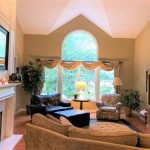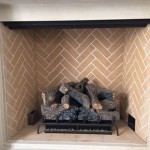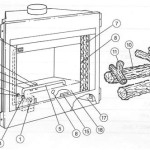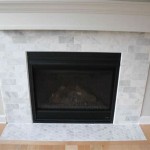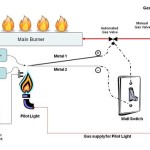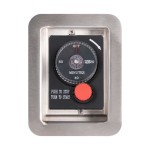Wood Burning Stove To Fit Existing Fireplace: A Comprehensive Guide
The allure of a crackling wood fire on a cold evening is undeniable. For many homeowners, the existing fireplace serves as the natural focal point for such an experience. However, traditional open fireplaces are notoriously inefficient, losing a significant amount of heat up the chimney. A wood burning stove, designed to fit an existing fireplace, offers a practical and aesthetically pleasing solution to enhance both the warmth and efficiency of a home.
While installing a freestanding wood burning stove offers maximum efficiency and heat output, situations often arise where retaining the existing fireplace structure is desirable. This could be due to architectural constraints, aesthetic preferences, or simply a desire to minimize extensive renovation work. In these cases, a wood burning stove insert or a stove specifically designed for fireplace installation provides a viable alternative, combining the charm of the open hearth with the functional benefits of a modern wood burning appliance.
This article will explore the key considerations when selecting and installing a wood burning stove to fit an existing fireplace, covering factors like stove sizing, safety requirements, installation procedures, and maintenance tips. Understanding these elements is crucial for ensuring a safe, efficient, and aesthetically pleasing installation.
Key Point 1: Assessing Existing Fireplace Suitability and Dimensions
Before even considering specific stove models, a thorough assessment of the existing fireplace is paramount. This involves a careful inspection of the firebox, chimney, and surrounding masonry structure to determine their suitability for housing a wood burning stove. Any existing damage, such as cracks in the firebox lining or crumbling mortar joints, must be addressed before proceeding with the installation. Ignoring these issues can compromise the safety and efficiency of the stove, potentially leading to hazardous conditions.
The dimensions of the firebox are critical for determining the appropriate size of the stove. Measurements of the width, depth, and height of the opening are required to ensure the stove will fit comfortably and safely. Adequate clearance around the stove is necessary to prevent overheating and potential fire hazards. In general, manufacturers specify minimum clearances to combustible materials in their installation manuals. These clearances must be strictly adhered to, and may require the installation of heat shields or other protective measures.
The chimney is arguably the most important component of the fireplace system. An existing chimney must be inspected for structural integrity and proper draft. Cracks, leaks, or obstructions can significantly reduce the chimney's ability to exhaust smoke and combustion gases effectively. A professional chimney sweep should be consulted to perform a thorough inspection and cleaning. They can identify any potential problems and recommend necessary repairs or upgrades.
In many cases, an existing chimney may not be suitable for use with a wood burning stove. Older chimneys may be unlined or have a flue size that is incompatible with the stove's requirements. In such situations, a stainless steel chimney liner must be installed. The liner is a continuous pipe that runs from the stove's flue collar to the top of the chimney, providing a dedicated and properly sized pathway for exhaust gases. The diameter of the liner must match the stove manufacturer's specifications to ensure proper draft and prevent the buildup of creosote, a flammable substance that can lead to chimney fires.
The hearth in front of the fireplace must also be adequate to protect the floor from embers and sparks. Most building codes require a non-combustible hearth extension of a certain size, depending on the size and type of stove. The hearth extension should be made of materials such as brick, stone, or tile, and should extend a sufficient distance beyond the stove's door to contain any stray embers.
Key Point 2: Selecting the Right Stove for the Fireplace and Heating Needs
Once the existing fireplace has been assessed and any necessary repairs or upgrades have been completed, the next step is to select a wood burning stove that is appropriate for the space and heating requirements. Several factors must be considered when making this decision, including the size of the area to be heated, the climate, the stove's heat output, and the desired burn time.
Stove heat output is typically measured in British Thermal Units (BTUs). A stove with a higher BTU rating will produce more heat, while a stove with a lower BTU rating will produce less heat. The appropriate BTU rating for a given space will depend on the size of the space, the insulation levels of the walls and ceiling, and the climate. A general rule of thumb is that a stove with a BTU rating of 30,000 to 40,000 BTUs is sufficient to heat a well-insulated 1,000-square-foot home in a moderate climate.
Stove efficiency is another important factor to consider. A more efficient stove will convert a higher percentage of the wood's energy into heat, while a less efficient stove will waste more energy. Stove efficiency is typically measured as a percentage, with higher percentages indicating greater efficiency. Modern wood burning stoves are significantly more efficient than older models, often achieving efficiencies of 70% or higher. This translates to lower fuel consumption and reduced emissions.
Burn time refers to the length of time that a stove can burn on a single load of wood. A stove with a longer burn time will require less frequent refueling, which can be a significant convenience. Burn time is influenced by several factors, including the size of the firebox, the efficiency of the stove, and the type of wood being burned. Hardwoods, such as oak and maple, tend to burn longer than softwoods, such as pine and fir.
Stove design and aesthetics are also important considerations. Wood burning stoves are available in a wide variety of styles, from traditional to contemporary. The stove's appearance should complement the existing decor of the room and the fireplace itself. Features such as glass doors, decorative legs, and enamel finishes can enhance the stove's visual appeal.
When choosing a stove specifically designed for fireplace installation, ensure it's certified by the U.S. Environmental Protection Agency (EPA). EPA-certified stoves meet stringent emission standards, burning cleaner and producing less air pollution. This is not only environmentally responsible but also often a requirement for local regulations.
Key Point 3: Safe Installation Practices and Maintenance
Proper installation is crucial for ensuring the safe and efficient operation of a wood burning stove. While some homeowners may be tempted to attempt a DIY installation, it is generally recommended to hire a qualified professional with experience in installing wood burning appliances. A professional installer will have the knowledge and expertise to ensure that the stove is installed correctly and in compliance with all applicable building codes and regulations.
The installation process typically involves several steps, including connecting the stove to the chimney liner, installing a block-off plate to seal the fireplace opening, and ensuring proper clearances to combustible materials. The block-off plate is a crucial component that prevents heat from escaping up the chimney and forces the combustion gases to flow through the chimney liner. It also prevents cold air from entering the room through the fireplace.
Following the manufacturer's instructions is paramount during installation. The installation manual provides detailed guidance on all aspects of the installation process, including the proper placement of the stove, the connection to the chimney liner, and the required clearances to combustible materials. Deviating from the manufacturer's instructions can void the warranty and create a safety hazard.
After the stove has been installed, it is important to perform a test burn to ensure that it is functioning properly. The test burn will allow the installer to check for leaks, ensure proper draft, and verify that the stove is heating the space effectively. It is also an opportunity to familiarize yourself with the stove's controls and operating procedures.
Regular maintenance is essential for keeping a wood burning stove operating safely and efficiently. This includes regular cleaning of the stove and chimney, as well as periodic inspections to check for any signs of damage or wear. The chimney should be inspected and cleaned at least once a year, or more frequently if the stove is used heavily. A professional chimney sweep can remove creosote buildup and identify any potential problems. Creosote buildup can significantly increase the risk of chimney fires.
The stove itself should be cleaned regularly to remove ash and creosote. Ash buildup can reduce the stove's efficiency, while creosote buildup can increase the risk of chimney fires. The frequency of cleaning will depend on the type of wood being burned and the stove's usage. Regularly burning seasoned hardwoods and maintaining proper air settings will help minimize creosote buildup.
It is also important to inspect the stove's door gasket regularly and replace it if it is damaged or worn. A damaged door gasket can allow air to leak into the stove, reducing its efficiency and increasing emissions. The door gasket should be replaced every few years, or as needed.
Finally, it is important to have a working carbon monoxide detector installed in the home. Carbon monoxide is a colorless, odorless gas that can be produced by improperly functioning wood burning stoves. Carbon monoxide poisoning can be fatal. A carbon monoxide detector will alert you to the presence of carbon monoxide in the home, allowing you to take action to prevent poisoning.

Converting A Fireplace To Wood Burning Stove Chesneys

Converting A Fireplace To Wood Burning Stove Chesneys

Can You Install A Wood Stove In Fireplace Direct Stoves

Woodburner Installations In Victorian Fireplaces Cosy Stoves

Can You Install A Wood Burning Stove In An Existing Fireplace

Victorian Fireplace Hobbit Installation Small Stoves

Can You Install A Wood Stove In Fireplace Direct Stoves

How To Prepare A Chimney For Wood Burning Stove Houzz Ie

Wood Buring Stove In An Existing Fire Place Installers

Inset Log Burners 5 Great Stoves That Fit In Your Fireplace
Related Posts

